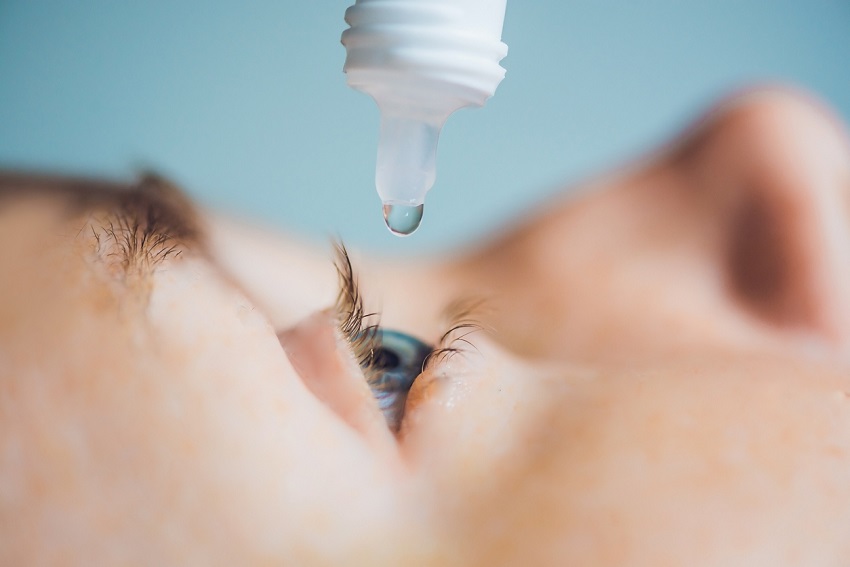People who suffer from allergies know the dreaded feeling of red, itchy and watery eyes all too well. Not only is it extremely annoying, but it can also lead to more complications, such as conjunctivitis and eye infections. For this reason, almost everyone who experiences itchy and red eyes from allergies is looking for a convenient way to stop that. Some of the most common methods of relief include:

Medicated Eye Drops
Due to the fact that eye allergies are common, there are many different brands of medicated eye drops you can buy without a prescription. These eye drops are specifically formulated to relieve redness, itchiness and watery eyes that are caused by allergies like pollen. If your symptoms are mild, over-the-counter eye drops may be the best solution, as they’re inexpensive when compared to prescription eye drops and other types of medication.
Avoid Allergens
It’s always better to prevent than to cure, and the best way to do that when it comes to eye allergies is to limit your exposure to the allergens you’re sensitive to. For instance, people suffering from pollen should stay indoors as much as possible during periods when the pollen count is high. Use furnace filters to trap allergens and turn on the air conditioning to help you filter the air. You can also wear wraparound sunglasses to shield your eyes from allergens such as ragweed, pollen, etc.
Avoid Wearing Contacts
The surface of contact lenses can accumulate and attract allergens, which is why during allergy season you should consider eyeglasses instead. Alternatively, you can get disposable contacts that are discarded after one use. However, sometimes the best solution is to not wear contacts until you deal with your allergy symptoms. Additionally, eyeglasses can be made using photochromic lenses to reduce allergy-related sensitivity to airborne allergens and light.
Prescription Medication
Prescription medication is usually your last resort when dealing with eye allergies. Some of the most common types of prescription medication include the following.
Antihistamines – Your body’s natural response to allergies is to release histamine, a substance which makes the blood vessels dilated. Some of the symptoms caused by this substance are itchy and watery eyes and a runny nose. Antihistamines help block the attachment of the histamine to the cells in the body which are responsible for producing allergic responses.
Decongestants – This medication helps reduce the size of blood vessels on the sclera of the eye to relieve redness and it helps to shrink swollen nasal passages to allow you to breathe. Some of the most common decongestants are pseudoephedrine and phenylephrine. You can also find medications that are a combination of antihistamines and decongestants.
NSAIDs (Non-steroidal anti-inflammatory drugs) – This medication comes in the form of eye drops and it can help decrease inflammation, swelling and other symptoms associated with hay fever (allergic conjunctivitis).













